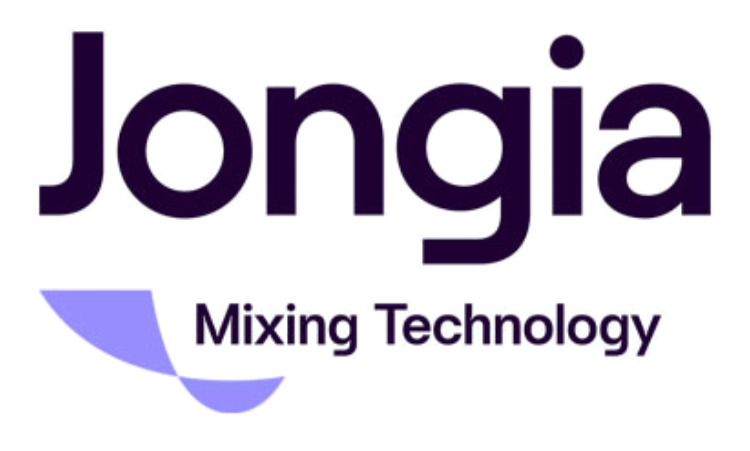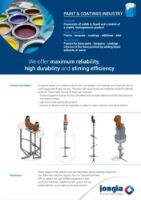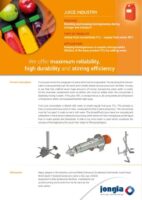Light Duty Top Entry Agitators
Types: FTD, JDR, L
Light duty top entry agitators and mixers are the best fit for applications like cosmetics production, storage of dairy products, ice cream ageing, fragrances and flavourings.
These applications are characterized by:
- Fluids which are easily mixed or kept homogeneous
- Small tank volumes
- Viscosities up to approx. 1000 cP
- Tanks with low pressure (max.10 bar g)
- Temperature -20 °C to 150 °C
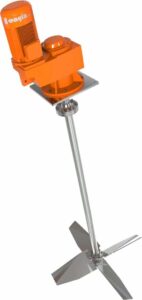
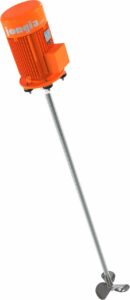
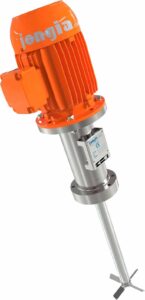
| Light Duty Top Entry | |
|---|---|
| Motor power | 0.25 kW – 15 kW |
| Materials | Stainless Steel 304, 316 L, Carbon Steel, Duplex (Super), Hastelloy C4 or C2000, Titanium Grade 2 or 7 |
| Coatings | C3, C4, C5 of C5M |
| Surface wetted parts | Ground until Ra < 0,4 µm, handpolished till <0,2 μm or electropolished, rubber lined, PTFE or HALAR |
| Explosion proof (ATEX) | Ex zone 0, 1 or 2 for gas, 21 or 22 for dust or Non-Ex version |
| Accessories | V-belt or gear driven (all brands), all kinds of sealing systems, sterile versions, adapted flanges to vessel |
FTD agitators
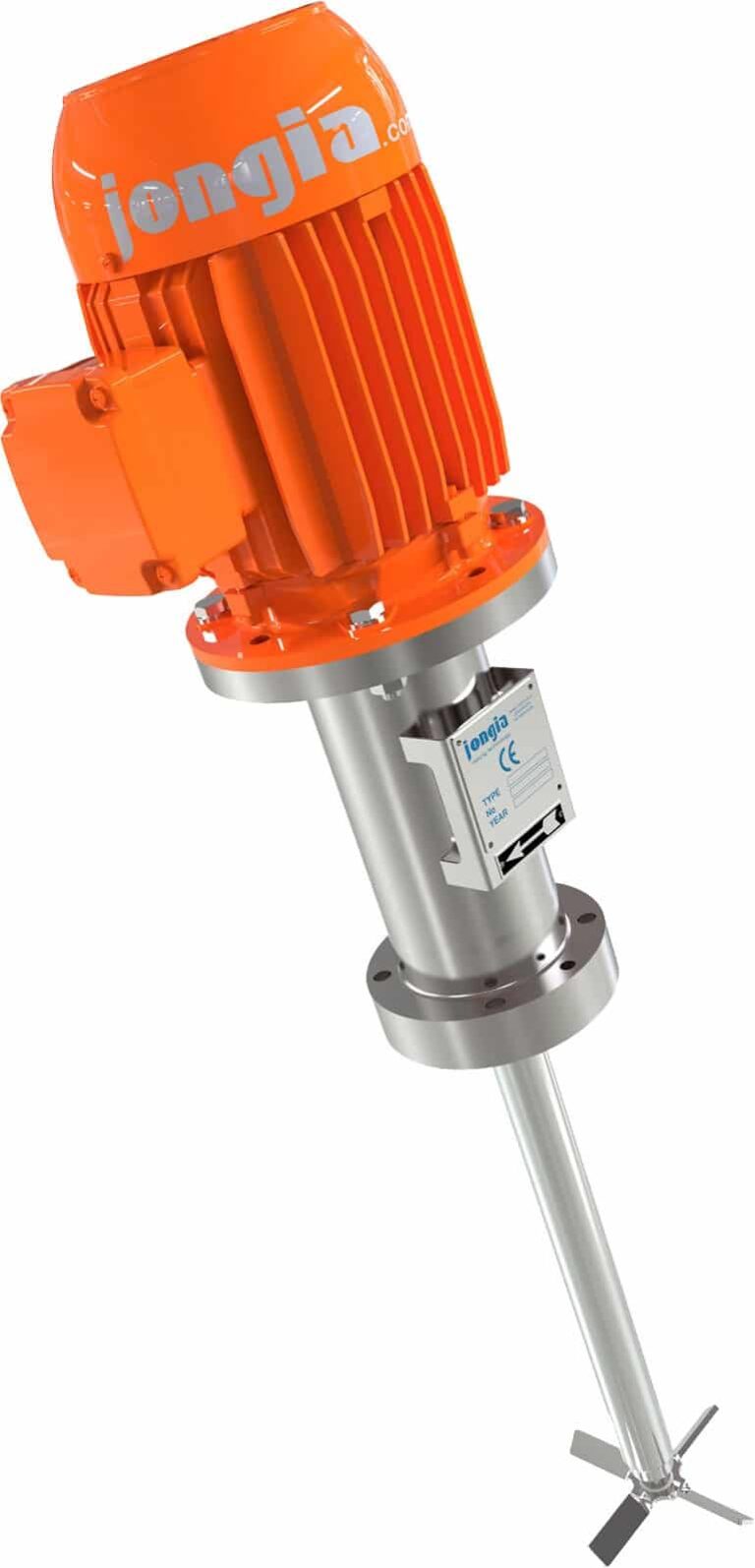
The FTD type mixer is a series of small mixers varying in shaft diameter from 25 mm to 50 mm. This type of mixer is more or less a standard design, however can be customized with a variety of motor brands, with or without coaxial gearbox. This type of mixer is specially designed for the higher operational speeds (>250 rpm) and can be delivered up to a shaft length of 3000 mm. The shafts are supported by two spherical roller bearings, which are lifetime lubricated (L10> 40.000 hrs) and coupled to the motor or gearbox through a flexible coupling.
This design of mixer which operates at speeds above 250 rpm is very suitable for mixing of different liquids, dissolving of solids in liquid, dispersion and emulsifying duties.
Applications Light Duty Top Entry Agitator – FTD
JDR agitators
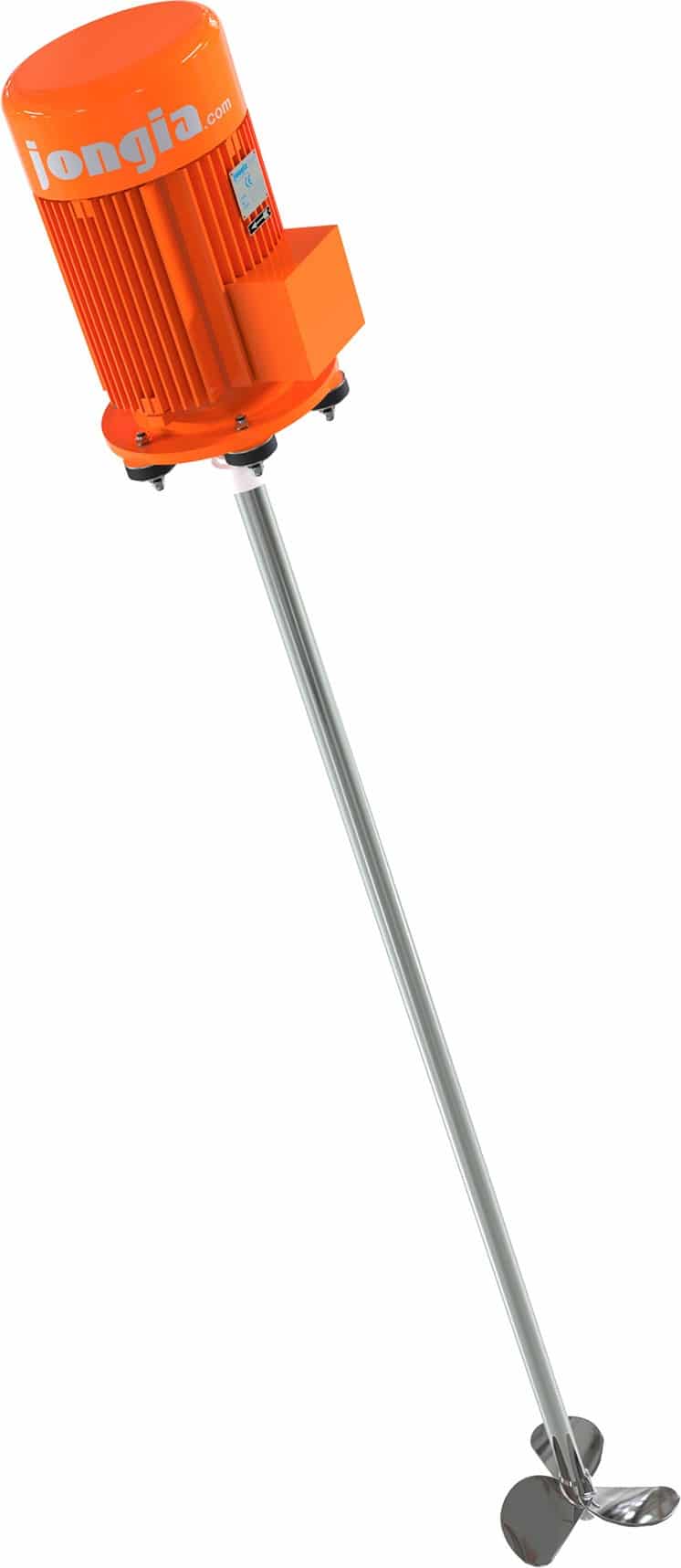
Jongia’s direct driven mixer type JDR is an innovatively designed top flange agitator for use in the food and pharmaceutical industries. It is a mixer without gearbox, so there is no oil/lubricants leakage which could contaminate your product. The mixer shaft is directly fitted directly into the drive, eliminating the need for an extra shaft coupling. The JDR is a strong and practically maintenance-free mixer which makes it a perfect solution for applications in the food and pharmaceutical industry. It is suitable for frequency converter controlled operation.
This design of mixer is very suitable for mixing of different liquids, dissolving of easy soluble solids in liquid, dispersion and emulsifying duties.
Applications Light Duty Top Entry Agitator – JDR
L agitators
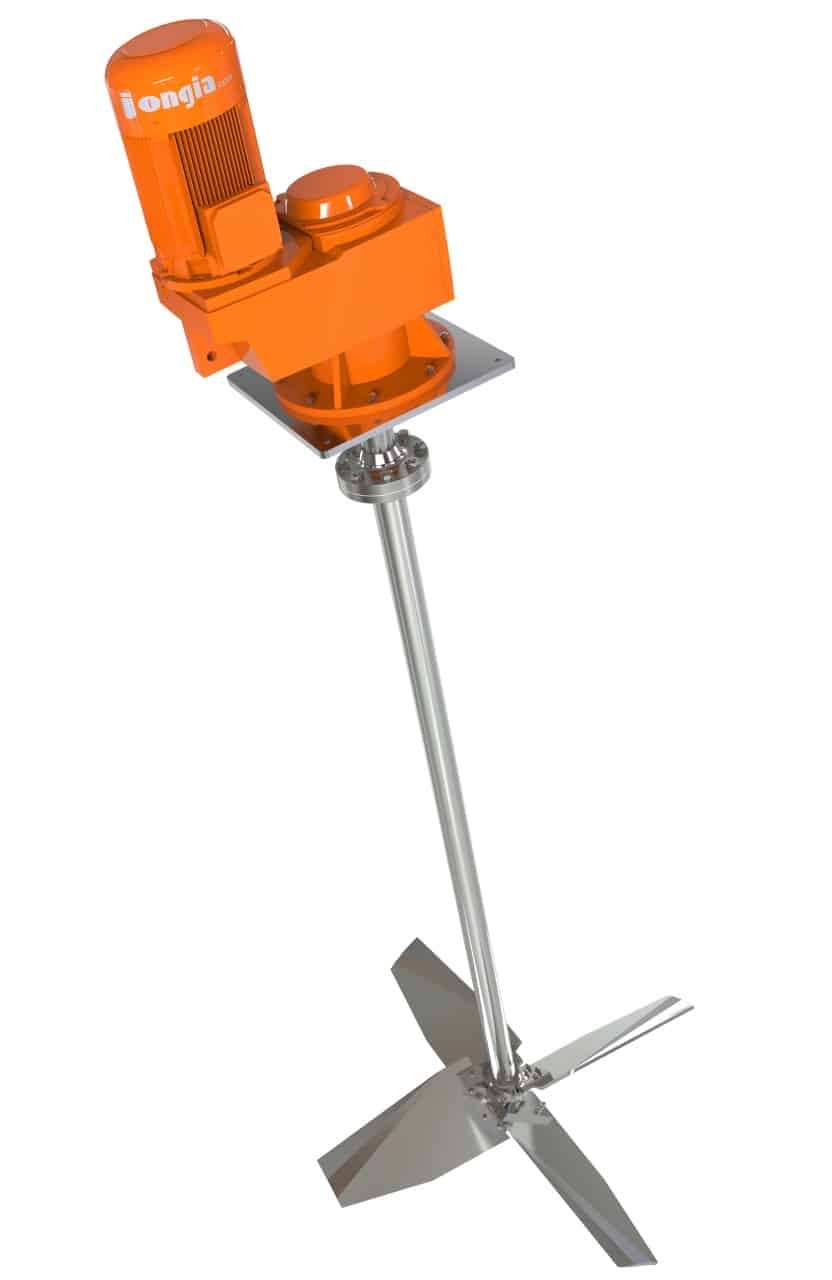
The L type mixer, fitted with an E-motor gearbox assembly, is applicable for a wide range of light and medium duty industrial applications. To guarantee the best solution for your mixing process the L type agitator can be equipped with a large variety of mixing elements range from simple marine propeller to special designed helical ribbons. Due to the large range of mixing elements this type of mixer can be used for many processes.
This design of mixer is very suitable for mixing of different liquids and dissolving of solids in liquid.
This design of mixer is very suitable for mixing of different liquids, dissolving of easy soluble solids in liquid, dispersion and emulsifying duties.
Applications Light Duty Top Entry Agitator – L
Frequently Asked Questions
What are Light Duty Top Entry Agitators?
Light Duty Top Entry Agitators are mixers designed for applications like cosmetics production and dairy storage. They efficiently handle low-viscosity fluids, small tank volumes, and temperatures ranging from -20 °C to 150 °C, making them ideal for a variety of industries.
What types of Light Duty Top Entry Agitators are available?
The available types of Light Duty Top Entry Agitators include FTD, JDR, and L. Each variant is designed to meet different operational needs and specifications while maintaining efficient mixing capabilities for various applications.
What is the motor power range for these agitators?
The motor power for Light Duty Top Entry Agitators ranges from 0.25 kW to 15 kW. This range allows for flexibility in performance depending on the specific mixing requirements of different applications.
Are the agitators suitable for food and pharmaceutical applications?
Yes, the Light Duty Top Entry Agitators, especially the JDR type, are specifically designed for the food and pharmaceutical industries. Their construction prevents contamination, making them a safe choice for sensitive mixing tasks.
What materials are used in their construction?
The agitators are made from materials like Stainless Steel 304, 316 L, Carbon Steel, Duplex, Hastelloy C4, and Titanium Grade 2 or 7. This variety ensures durability and compatibility with different fluids and environments.
Contact our specialized team for all your questions

Tom Pruymboom
Sales Director

Teun van der Spek
Area Sales Manager
Top Entry Agitator Articles
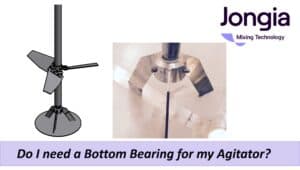
Do I need a Bottom Bearing for my agitator?
Do I need a Bottom Bearing? The installation of a bottom bearing is not mandatory. While it offers certain advantages, there are also drawbacks to consider. It is important to note that the bottom bearing functions more as a displacement
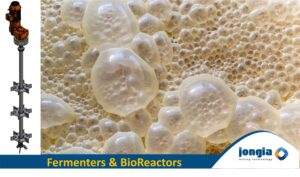
Fermentation & Bioreactor Mixing Process
Bioreactors and Fermenters are culture systems to produce cells or organisms. They are used in various applications, including basic research and development, and the manufacturing of biopharmaceuticals, food and food additives, chemicals, and other products. A broad range of cell types and organisms can be cultivated in bioreactors and Fermenters, including cells (like mammalian cell lines, insect cells, and stem cells), microorganisms (like bacteria, yeasts, and fungi), as well as plant cells and algae. The words “Bioreactor” and “Fermenter” are basically the same thing.
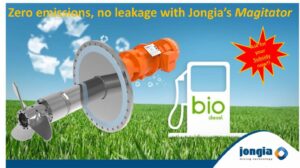
Biodiesel blending with zero leakage!
Fuel blending is a critical component of biodiesel production. A properly blended fuel can increase energy efficiency, reduce emissions and improve performance. However, it can be difficult to achieve consistent fuel quality during blending due to differences in storage tanks,
